Being only four weeks old, it's got that new plane smell.
And the inviting interior scent belongs to a cabin that heralds a new era for American Airlines (AA).
Just how positive this era will be is something I'm discovering.
I'm on board one of the carrier's brand-new Boeing 787-9 Dreamliners at London's Heathrow Airport, the plane having just flown in from Chicago O'Hare Airport.
On AA's scheduling, it would have been denoted as a 787P, the "P" standing for premium.
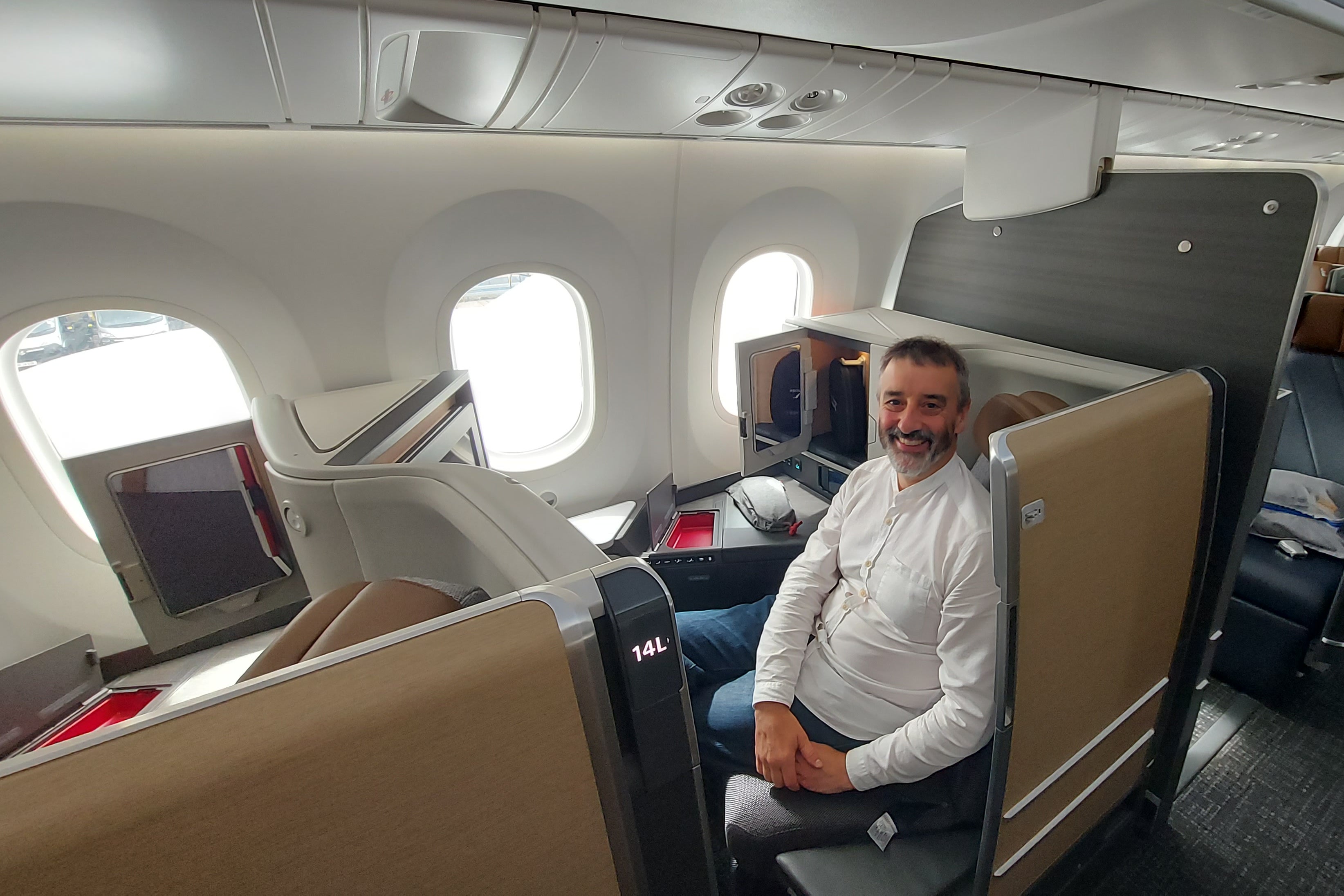
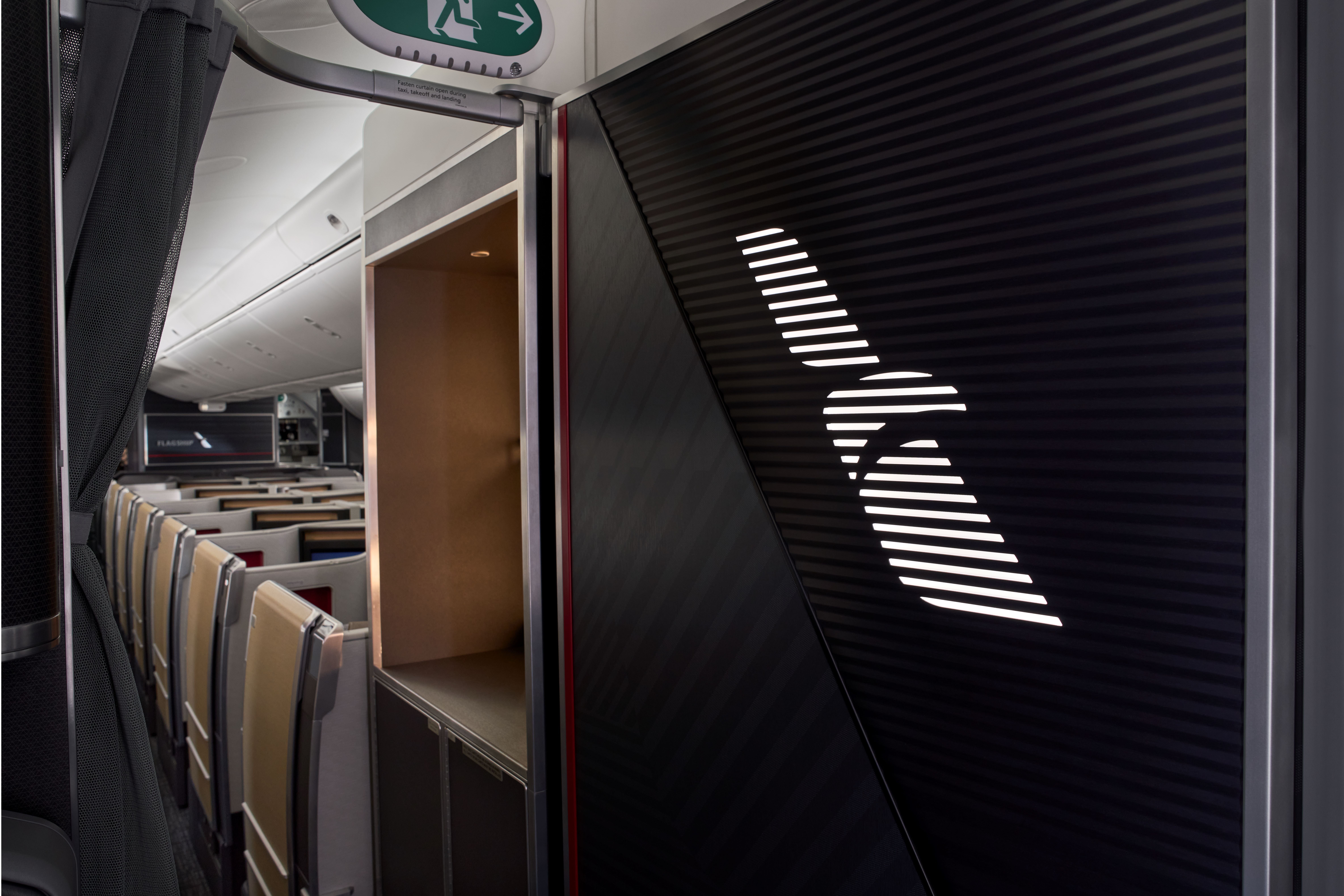
This tells passengers it's a Dreamliner with a fully upgraded cabin, from front to back, with a new business-class seat called the Flagship Suite, a new premium economy and a refreshed economy offering.
The new cabin launched in June on the Heathrow-Chicago route, but 787Ps will enter service soon from Philadelphia to Heathrow and Zurich, and from Dallas-Fort Worth to Brisbane and Auckland.
The new cabin will be available on all newly delivered 787-9 aircraft, as well as new Airbus A321XLR aircraft and retrofitted Boeing 777-300ERs. By 2030, American will be flying 70 of them.
I'm being shown the new flying experience by the carrier's Vice President of International Operations, José A. Freig.
He points out the elegant American Airlines logo on the dark-grey partition at the front that greets fliers as they board, and we pause at the set of eight Flagship Suite Preferred seats at the front.
These are supersized versions of the regular lie-flat Flagship Suites (that will eventually be sold for a supplementary fee) and come with 19 percent more bed space and 42 percent more "living area" than the business-class seats further back.
They also sport a darker finish, with black marbling, brushed aluminum and darker brown upholstery apparently earning them the nickname of “Darth Vader” seats.
Jose says they're already highly sought-after slices of mid-air real estate for frequent fliers.
I can see why. They have the air of a first-class berth and the moodier hues are alluring.
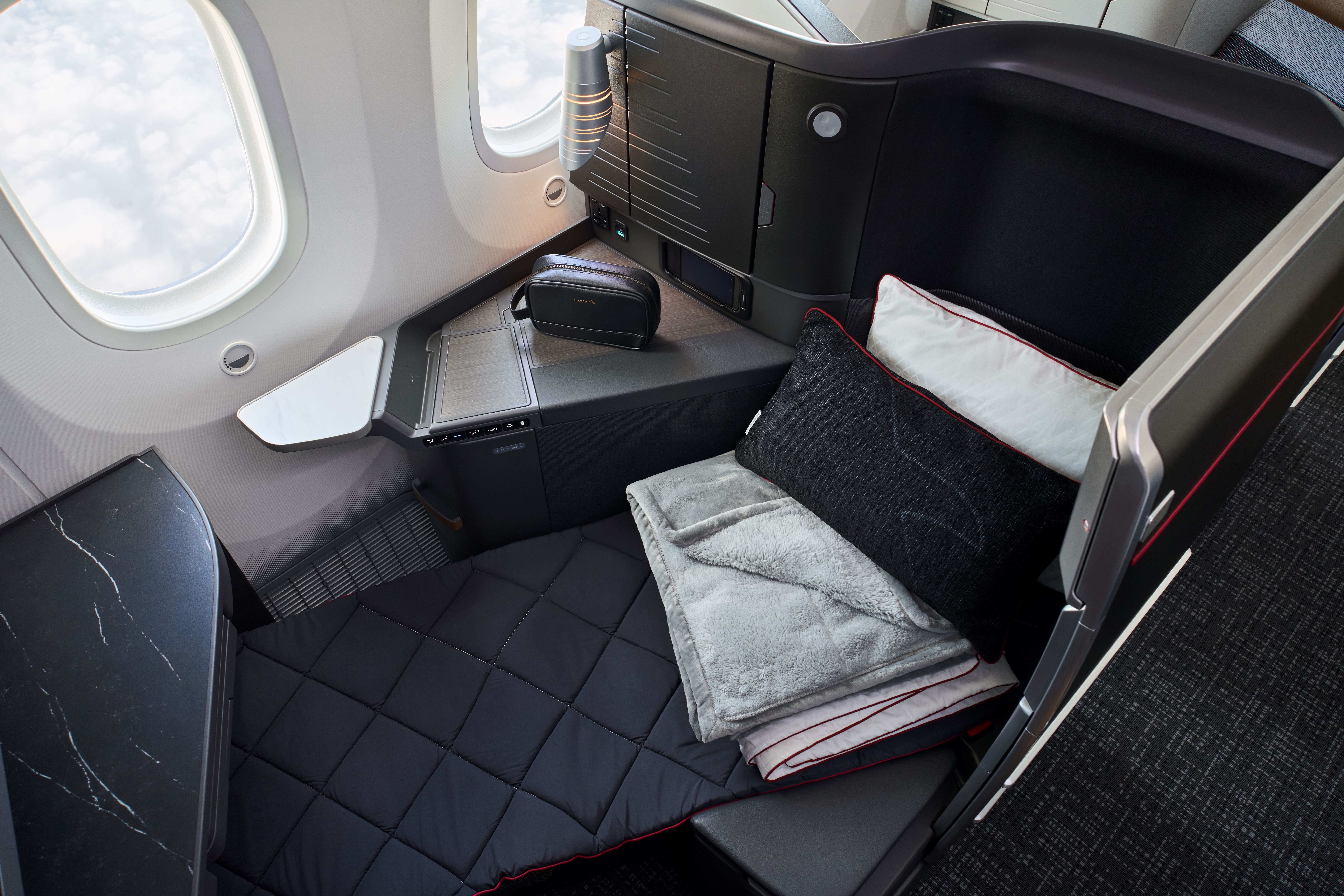
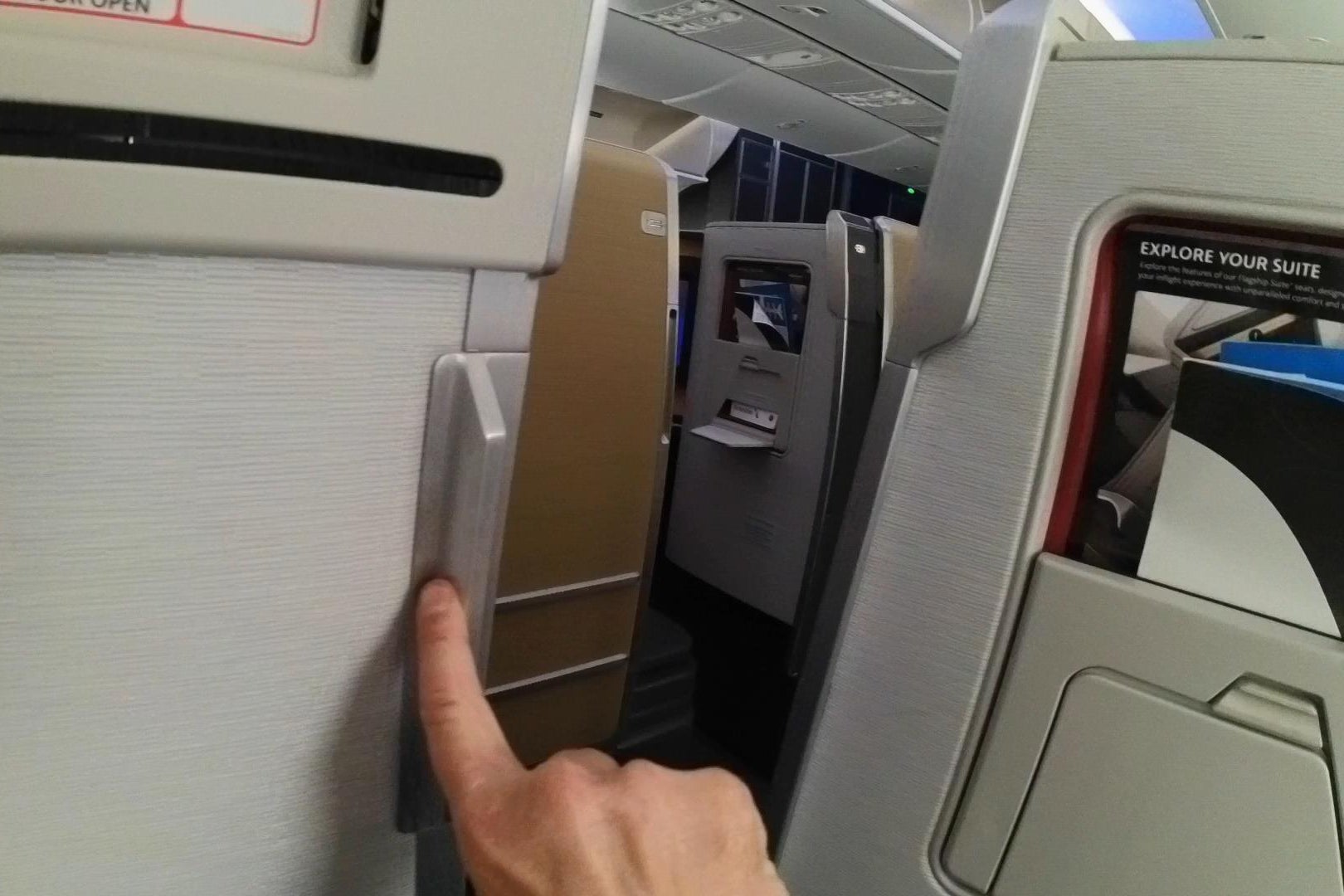
As for the cabin as a whole, Jose says that customer feedback declares it a "game-changer".
Jose lets me loose to explore on my own before the flight crew arrive for the return leg, and based on my 15-minute investigation, during which I'm able to sit in each seat type and press a few buttons, I'd be inclined to agree that this cabin is transformational.
In the business-class cabin, arranged in a 1-2-1 configuration, the number one reason is that all the seats feature privacy doors.
While the normal Flagship Business seat has a satisfying cocooning effect, the sliding door takes the cosiness factor up a level.
Read more: Frequent fliers reveal the upgrade tips that actually work
I also love the chic cream, gray and light brown color scheme and the easy-to-reach seat controls.
Aviation geeks will note that the Flagship Suite is based on the Adient Ascent design, which is also the seat platform for United Airlines' new Polaris Elevate business-class seat that I examined at a launch event in New York earlier this year.
You'll also find it on the 787-9 Dreamliners flown by Qatar Airways and Hawaiian Airlines.
So American Airlines isn't reinventing the wheel here, but has sensibly married a top-tier seat with a very good aircraft.
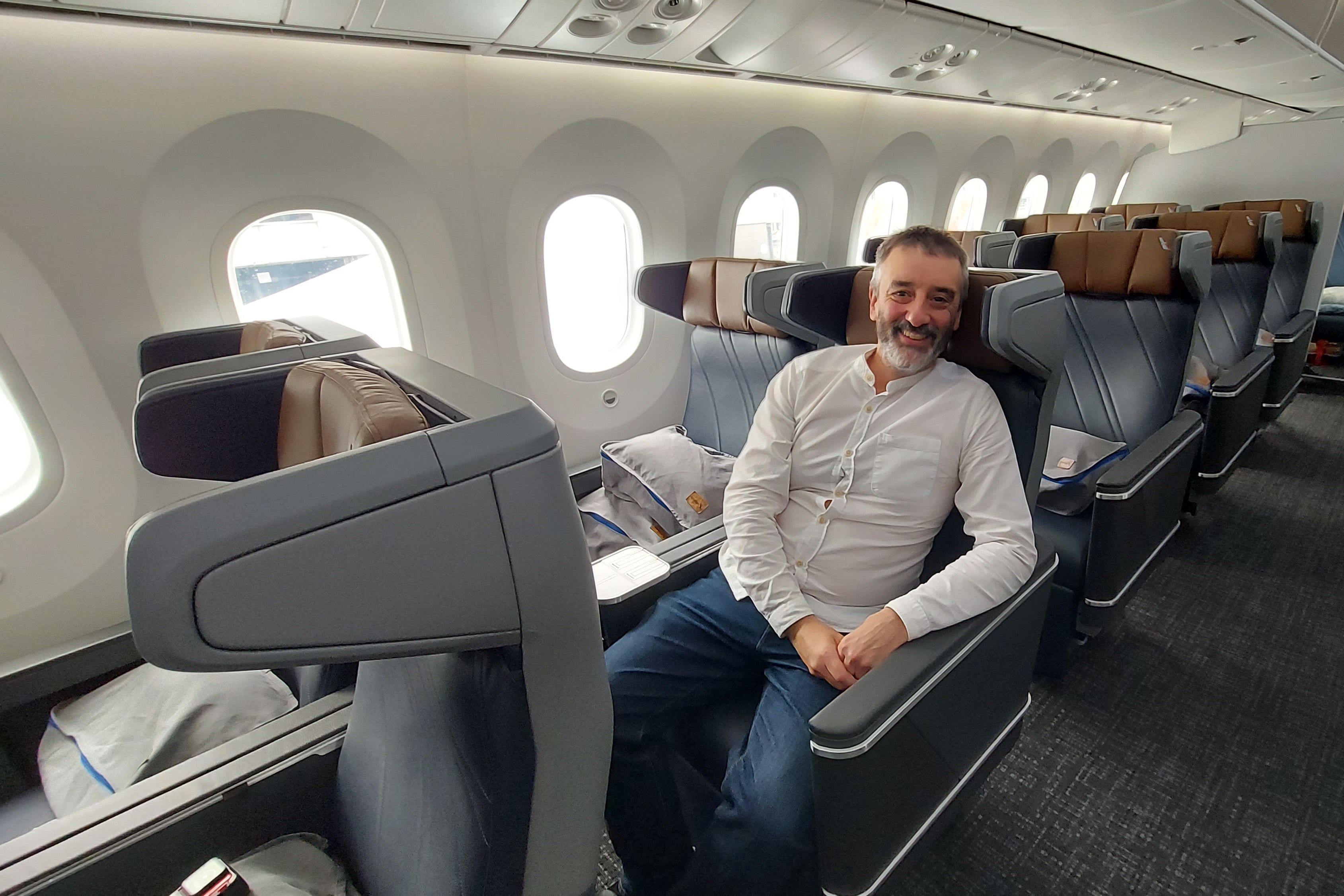
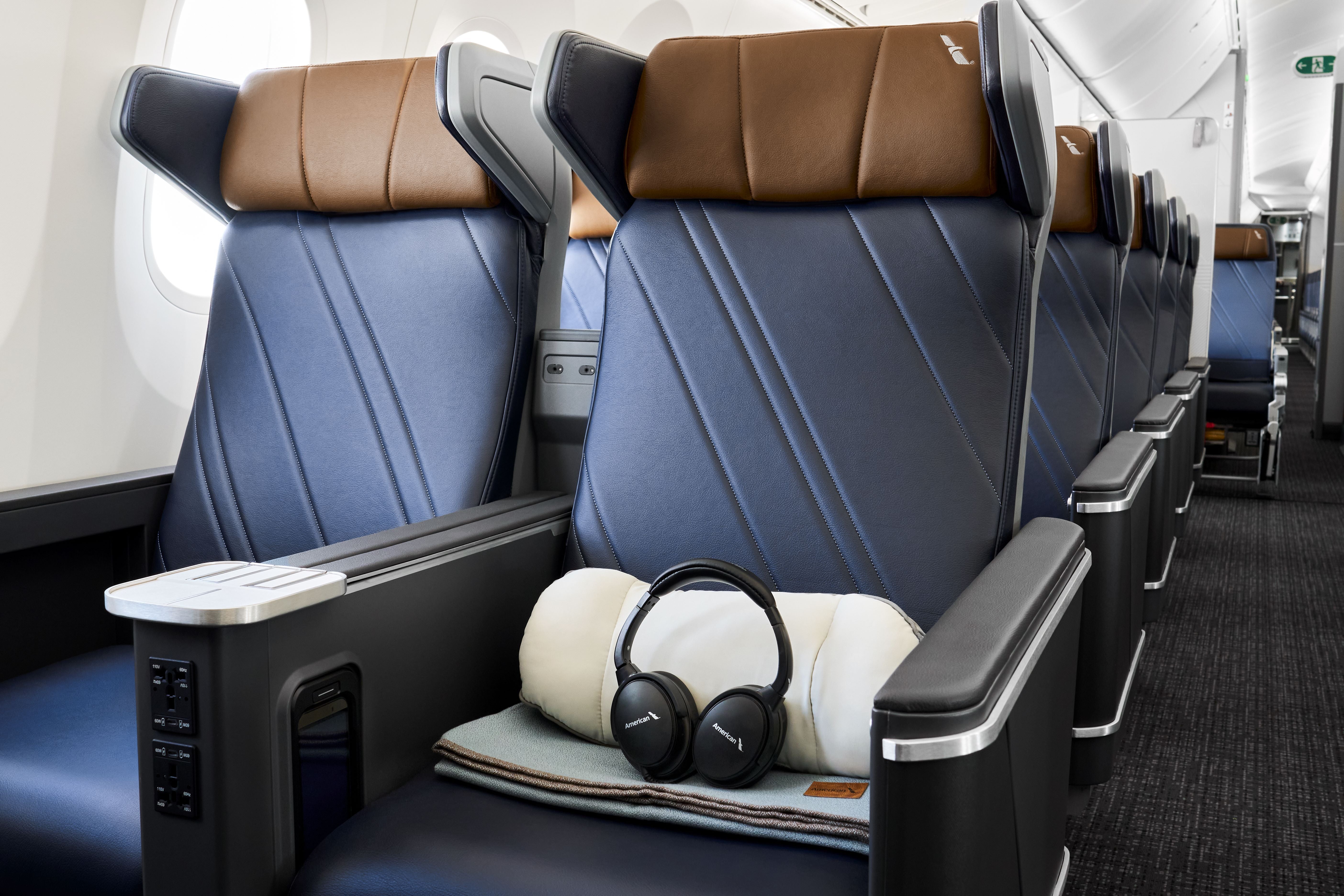
Meanwhile, the premium economy seats — which have a pitch of 38 inches and a width of 19-19.5 inches depending on location — have thoughtful "privacy dividers" that help shield passengers from their neighbors and double the amount of in-seat storage.
There are cabin-wide improvements, too, with entertainment screen sizes significantly bigger no matter which ticket you've bought.
The screens in the 787P are 12 percent larger in Flagship Suite, 21 percent larger in premium economy and 29 percent larger in the main cabin, where seats have a pitch of 31 inches and a width of 16.5-17.6 inches.
Charging options are also more ubiquitous.
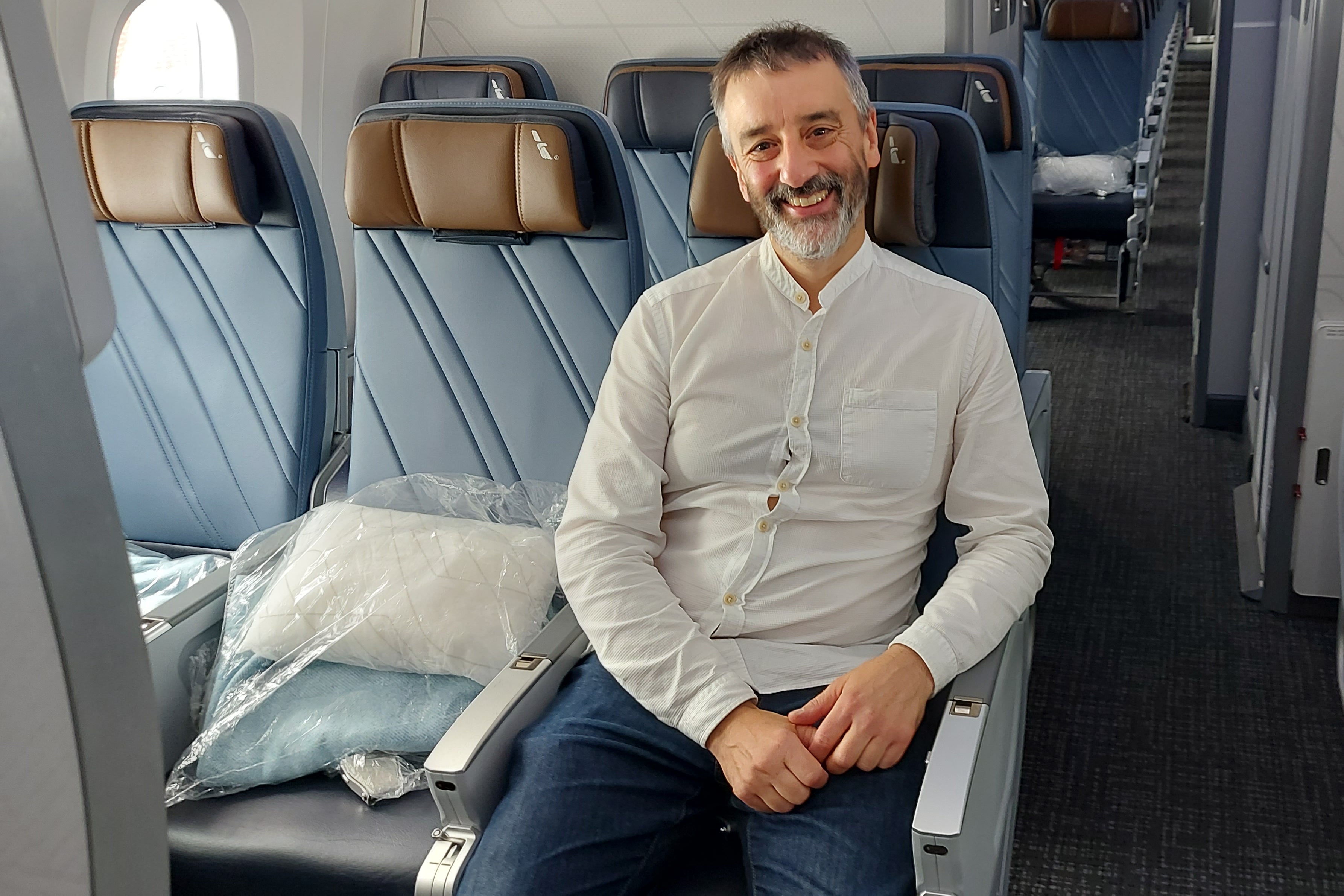
.jpeg?trim=0%2C15%2C0%2C285)
The older Dreamliners have AC and USB-A power points, but the 787P boasts these in all cabins along with USB-C and wireless charging in business and premium economy and USB-C ports in economy.
There's now Bluetooth connectivity throughout, too.
I tell Jose that this cabin feels more elegant and sophisticated than its predecessor.
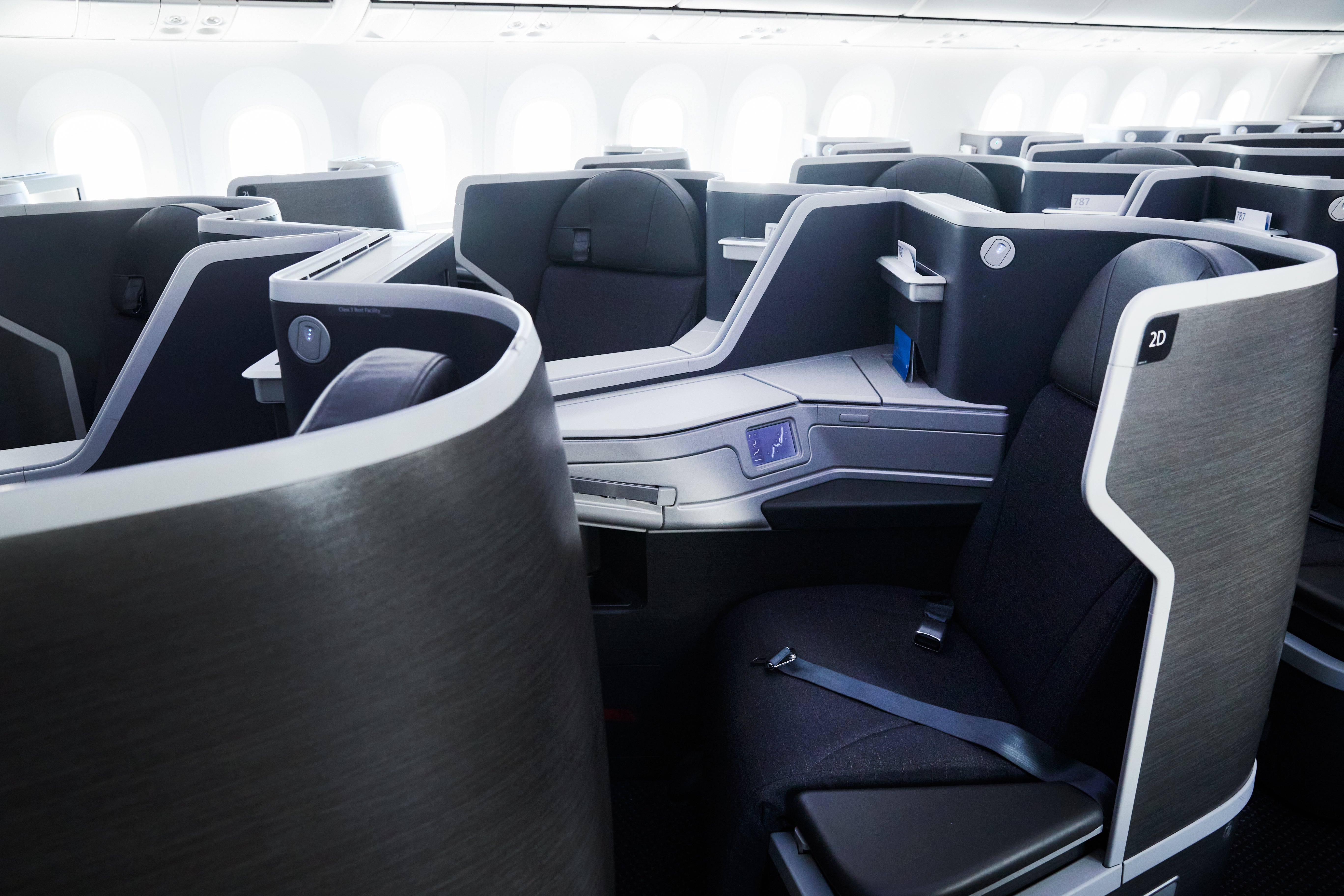
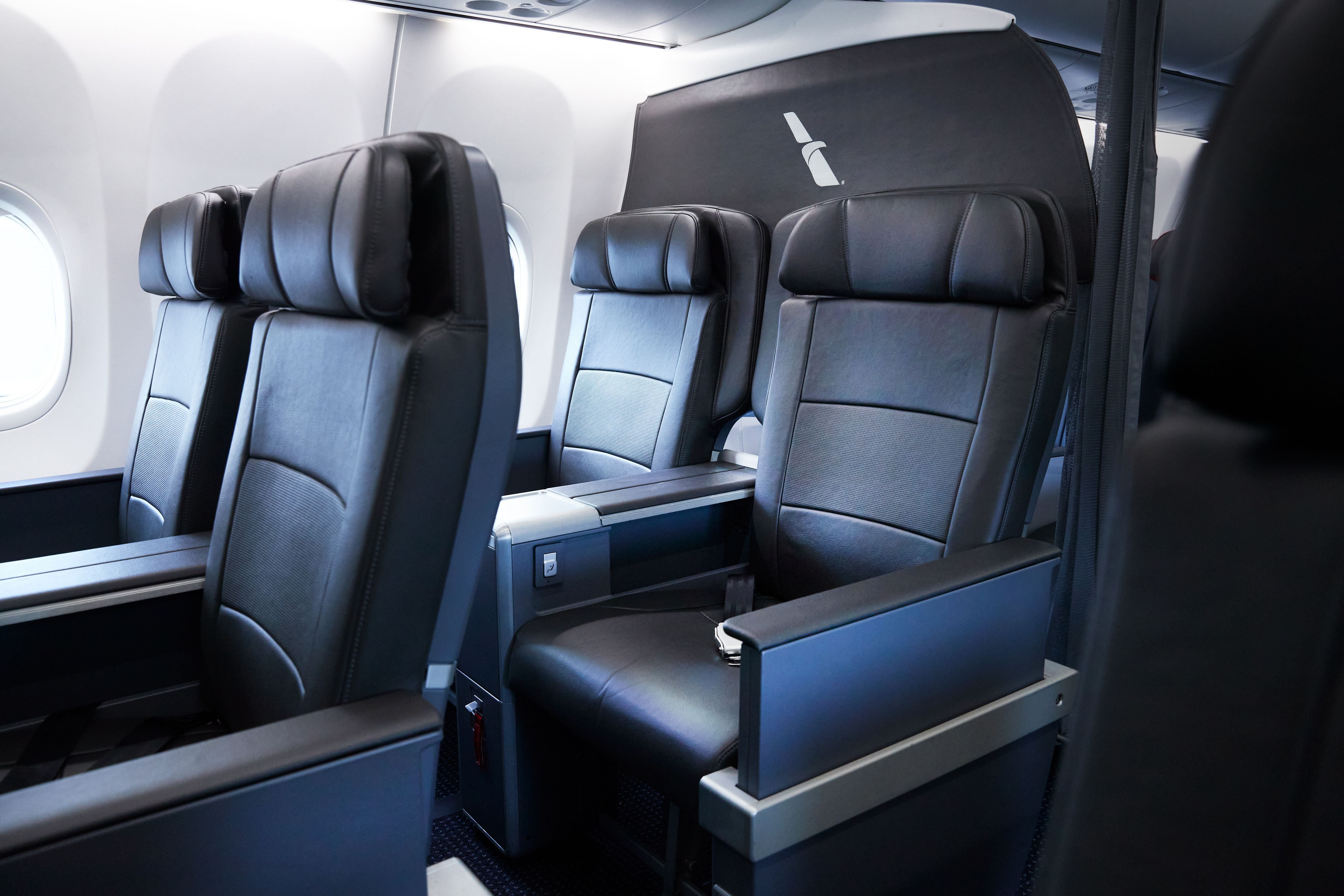
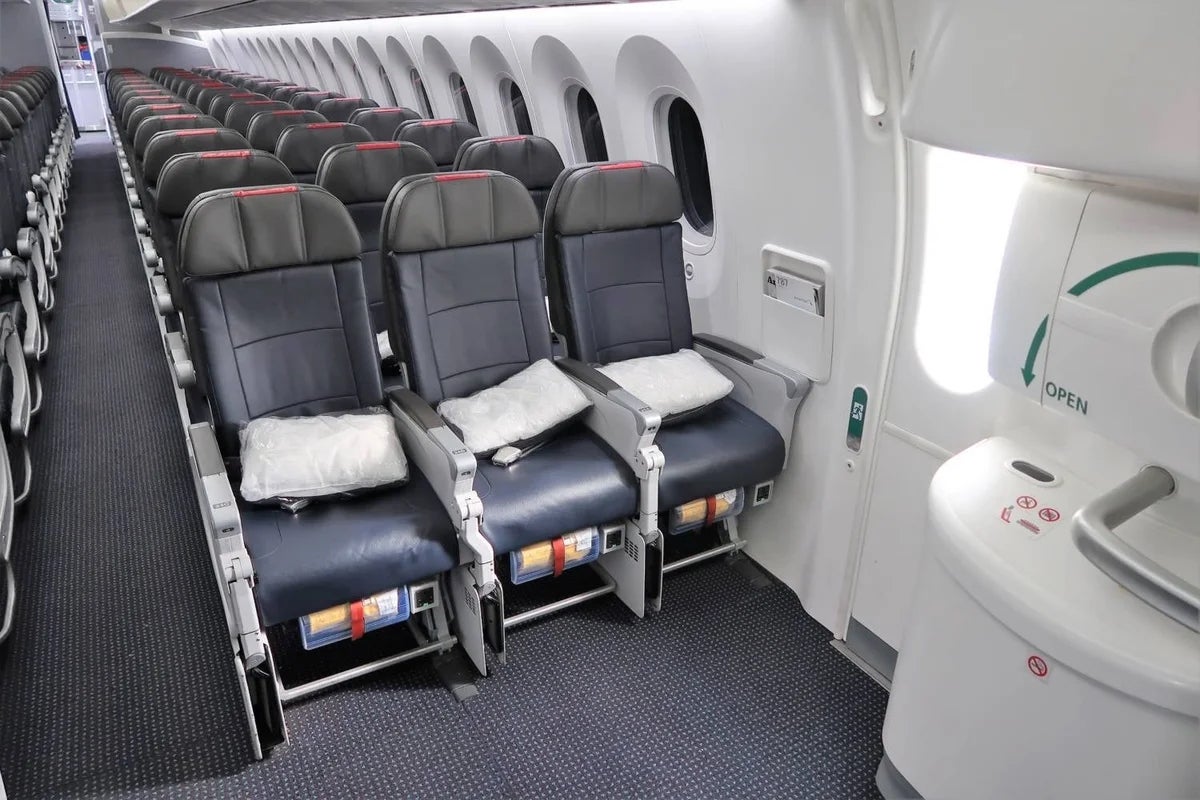
This has been achieved not just by the introduction of privacy doors and a new color scheme, but by a reduction in the number of seats in the aircraft overall, from 285 on the older 787-9 to 244 on the 787P.
Seat pitch and width remain largely unchanged, but the cabin is intensely premium, with 32 premium economy seats versus 21 on the regular 787-9 - that's a 52 percent increase – and 70 percent more business-class seats, which are up from 30 to 51.
Jose tells me after my Terminal 3 walkabout that the cabin gives American Airlines "a leg-up on its transatlantic competitors".
The new cabin certainly puts the carrier in a strong position and I can’t wait to try it while airborne. Watch this space — and for that magic letter "P" on your next American Airlines booking.
Southwest Airlines launches ticket sales for flights with assigned seating in major policy U-turn
How Delta amenity kits changed across the decades, from shoehorns to spa-grade toiletries
Heathrow third runway: Simon Calder tackles the key issues facing airport expansion
Our flight was cancelled because of the software glitch – can we get compensation?







